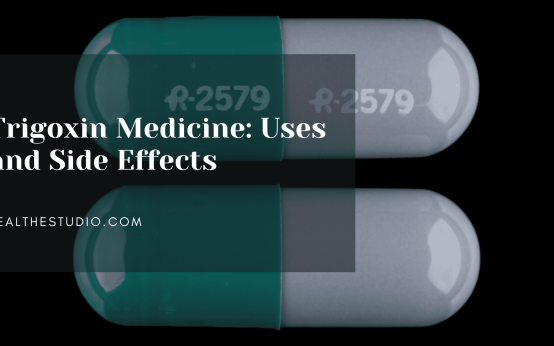When you think of fish oil, you may often envision those yellow-golden softgels. However, keep in mind that fish oil actually comes in various forms, namely liquid oil, softgels, and hard capsules. Omega 3 fatty acids are present in all three and play a crucial role in essential functions such as maintaining cell membranes and chemical messengers like hormones.
However, the extent of benefits of the different forms of fish oil differs in various ways. Each kind of supplement also offers different benefits in terms of consumption, absorption, and ease of storage.
Let’s discuss!
Fish Oil Liquid
Fish oil liquid is the kind of supplement you pour out of a bottle and take with a spoon. Your average fish oil comes from the fatty tissues of oily fish and undergoes a specific processing method. You can easily consume it by itself, or even add it to your meals as a dressing. Unlike tablets or softgels, liquid fish oil tends to have a stronger odor, reminiscent of raw fish and salty water. Additionally, because it is a part of a fish in a way, you need to store liquid fish oil very carefully. Refrigeration is essential for its preservation.
Pros Of Liquid Fish Oil
Easy Dosage Administration: When it comes to adjusting dosage, fish oil is versatile. You can easily consume this supplement in the form of drops or spoonfuls. Thus, it is convenient when you have individuals of various ages in one household, each member needing a different dosage.
Mix With Food: Prefer masking the taste and feel of fish oil entirely? A spoonful of fish oil in your salad or smoothie with plenty of other ingredients, and you get the nutrition in a yummy way!
Cons of Liquid Fish Oil
Smells & Tastes ‘Fishy’: Liquid fish oil is not easy to ingest when you have to taste each drop. If you are extremely sensitive to tastes or have an aversion toward seafood, fish oil liquid can be a challenge to handle. However, know that fresh, good-quality fish oil smells like fish that’s been recently caught. If your oil reeks heavily, it’s likely old or not manufactured right.
Stronger Side Effects: Compared to any other kind of fish oil supplementation, the liquid form can feel heavier in the gut. Since it starts taking effect right from your mouth by interacting with the bacteria, it may cause fishy burps.
Prone To Quick Expiration: Fish oil liquid, without minimal to no processing, can start going rancid without proper care in usage and storage.
Fish Oil Softgels
When it comes to solid fish oil supplements, you have the option to pick softgels. This dietary supplement has concentrated amounts of omega 3 fatty acids. Softgels are made up of a special gelatinous substance that is designed to withstand the acidic environment of the stomach. These softgels can be big or small, each kind containing a different dose.
Pros Of Fish Oil Softgels
Easy To Swallow: Are you not one to swallow medicine without that choking feeling? Fish oil softgels are hassle-free for you then, thanks to their smooth texture. Also, for smaller children who struggle with swallowing tablets and hard capsules, fish oil softgels are a much easier option for consumption.
Can Be Opened: If you’re not sure if you need all the liquid in the softgel at any time, break one open and take it as a spoonful. Of course, the easier option is to buy the liquid, but softgels come in handy when you prefer the soft capsule form with the occasional need for liquid fish oil for direct ingestion or adding to meals.
Cons of Fish Oil Softgels
Take Time To Digest: Surprisingly, fish oil softgels may take the most amount of time to digest, since the gelatin coating is not always easy for your digestive tract to break. Although for easy digestion it is best these dissolve open later, too late digestion means you don’t get full benefits.
Bear Slight Smell: While fish oil capsules enclose the oil in a gelatin coating, the smell of the fish is still present. Also, thinner coating means these break down in the gut, causing fishy burps. While the too-thick gelatin layer interferes with digestion, a too-thin coating cannot mask the taste and smell 100 percent.
Fish Oil Capsules (Hard Pills)
Like fish oil softgels, capsules (or tablets as some people may alternately call these) also have a coating. Although the layer is quite solid, it is designed to break open easily. Given the more complex procession, some fish oil capsules also contain other nutrients.
Pros Of Fish Oil Capsules
Better Flavor & Smell: Fish oil capsules undergo extensive processing, often made with the addition of flavorings to mask the fishy odor and taste. Therefore, these are much more appealing to those who are selective about their supplements.
Additional Nutrients: Fish oil capsules and softgels can have different ingredients depending on the brand and manufacturer. It’s not uncommon for some supplements to include extra components such as antioxidants, vitamins, or minerals. If you want a fish oil supplement with additional benefits, you can go for capsules.
Cons of Fish Oil Capsules
Fixed Dosage: You cannot pour these out in a spoon to increase/decrease the dose or break open a softgel. So, when you have to focus on the amount of omega 3, capsules can be inconvenient.
Incomplete Omega 3 Benefit: Your body can absorb only up to 53 percent of the nutrients from a capsule, while the rest is digested without benefits and discarded. So, if you’re taking fish oil capsules, you may miss out on about half of the perks.
Which Kind Of Fish Oil Is The Best?
In general, deciding between best fish oil liquid, softgels, and capsules can vary based on personal preferences and factors such as ease of swallowing, taste, and absorption. If you want to be sure about the medically best form for you, you can always consult a healthcare professional.



 Probiotics for Women’s Health: Benefits, Types, and Considerations
Probiotics for Women’s Health: Benefits, Types, and Considerations  How Long Does it Take for Tylenol to Work
How Long Does it Take for Tylenol to Work  Trigoxin Medicine: Uses and Side Effects
Trigoxin Medicine: Uses and Side Effects  Protecting Your Liver from Harm: Lifestyle Changes for Optimal Health
Protecting Your Liver from Harm: Lifestyle Changes for Optimal Health  Should I Take Meloxicam at Night or in the Morning for Best Results?
Should I Take Meloxicam at Night or in the Morning for Best Results?  How to kill tooth pain nerve in 3 seconds permanently at home
How to kill tooth pain nerve in 3 seconds permanently at home